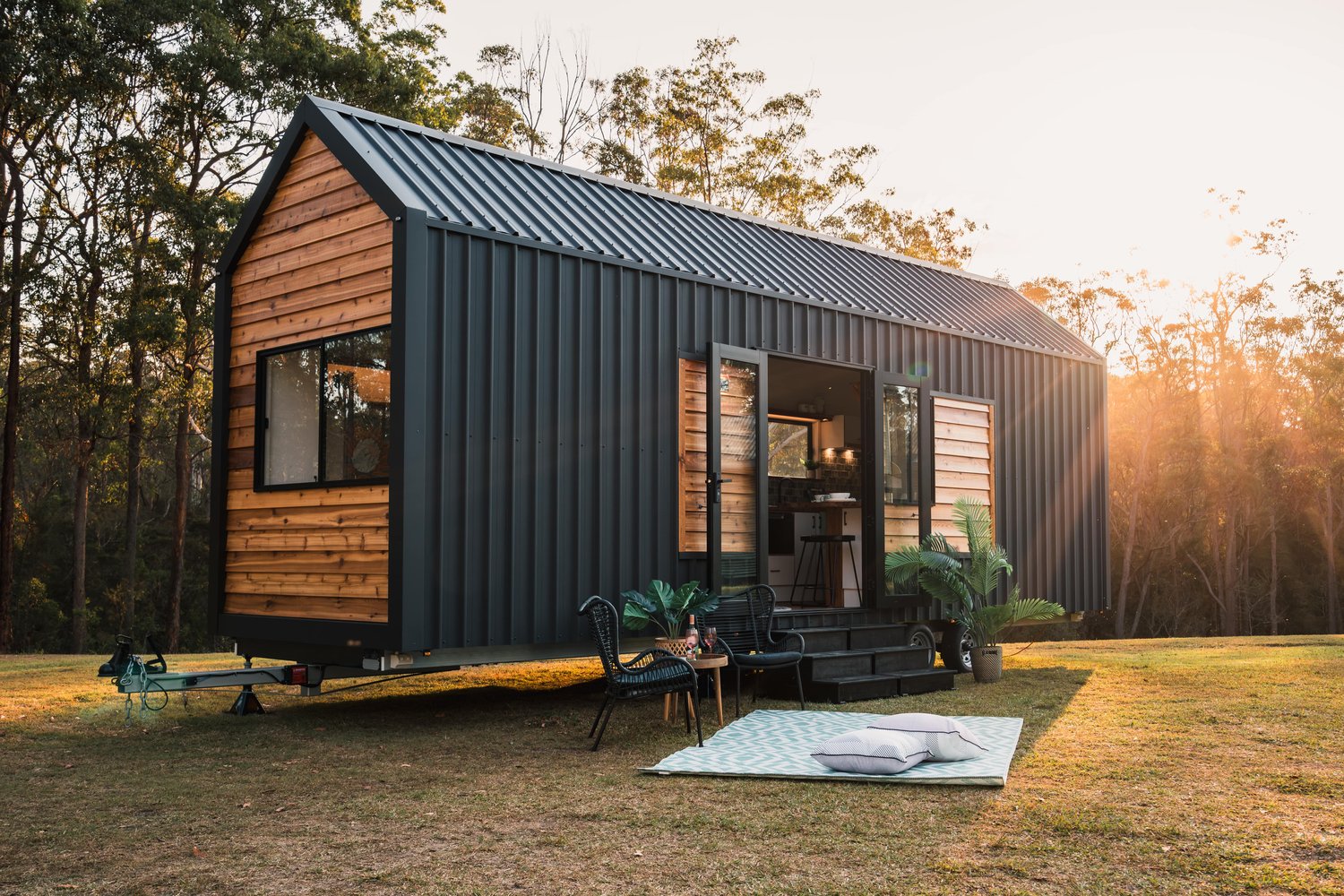A Tiny House can be cost effective and environmentally beneficial. In pursuit of environmental sustainability, solutions often emerge from unexpected places. One solution gaining traction is the embrace of tiny houses. These small dwellings, typically measuring under 40 square metres, offer more than just a lifestyle choice; they use less materials than conventional houses and therefore help the environment.

MyTinyHomeKit Took Money and didn’t Deliver Homes
Things are not all great in the tiny house industry though, and consumers should beware. This was the case with Melbourne company MyTinyHomeKit owned by Spencer Porter. Dozens of customers paid upfront and never received their homes.
A Tiny House has Environmental Benefits
At first glance, the link between tiny houses and the environmental might not be immediately apparent. Yet, delve deeper, and their eco-friendly credentials become clear. The environmental benefits of tiny houses stem from their reduced resource consumption and lower environmental footprint compared to traditional homes.
One of the most glaring advantages of tiny houses is their significantly smaller use of materials during construction. By their very nature, these compact homes require fewer building materials, thereby reducing the strain on natural resources. From timber to concrete, the materials used in construction are responsible for a substantial portion of our carbon emissions. By opting for smaller living spaces, individuals can play a part in mitigating this impact.
Lower operational footprint
The operational footprint of tiny houses is markedly lower than that of conventional homes. With less space to heat, cool, and illuminate, energy consumption is drastically reduced. This translates into lower utility bills for occupants and a decreased reliance on fossil fuels for energy generation. In an era where climate change looms large, every kilowatt-hour saved represents a step in the right direction.
Tiny houses also lend themselves well to the adoption of renewable energy technologies. With limited roof space to cover, outfitting these homes with solar panels becomes a more feasible proposition. Harnessing the power of the sun not only reduces reliance on non-renewable energy sources but also contributes to decentralising energy production, fostering greater resilience in the face of disruptions to the grid.
The small size of these dwellings encourages a more mindful approach to consumption. In a culture often defined by excess, the ethos of tiny house living emphasises simplicity and sustainability. Residents are compelled to scrutinise their possessions, prioritising quality over quantity and eschewing the disposable consumerism that plagues modern society. By embracing a more minimalist lifestyle, individuals can reduce waste and curb their ecological impact.
The Tiny House Community
Compact in nature, tiny house communities foster a stronger sense of community and social cohesion. With smaller living spaces and shared amenities, residents are encouraged to interact and collaborate, fostering a culture of mutual support and resource sharing. This communal ethos not only enriches the lives of inhabitants but also promotes sustainable practices through collective action.
Like any solution, they come with their own set of challenges and limitations. Zoning regulations, access to affordable land, and financing hurdles can pose significant barriers to widespread adoption. Furthermore, the transition to tiny house living may not be feasible or desirable for everyone.
As we confront the urgent need to address climate change and resource depletion, we must explore all avenues for reducing our environmental impact. Tiny houses offer a great alternative to the status quo, challenging our preconceptions about what constitutes a home and how we choose to inhabit the planet. In embracing these small homes, we take a small but meaningful step towards a more sustainable future.
